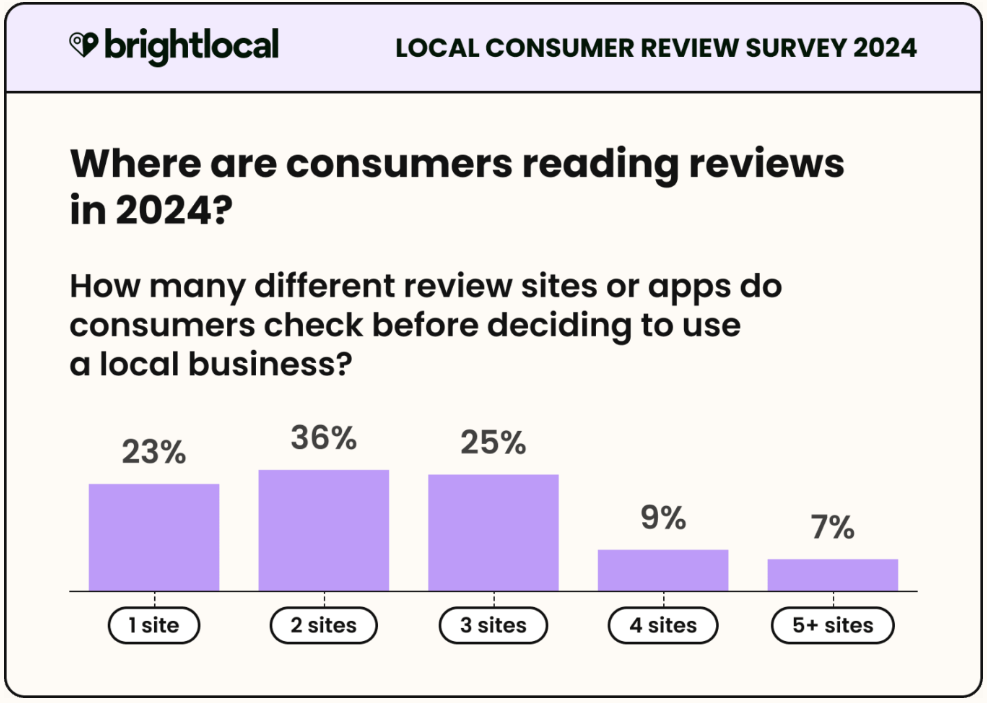A patient searching for a new doctor stumbles across a scathing review about long wait times or a billing mix-up, and in seconds, they’ve moved on to a competitor with a glowing five-star profile. In today’s world, where 80% of Americans research health providers online (Pew Research Center), a single negative comment can ripple through a practice’s patient base, eroding trust and revenue. Whether you’re a solo practitioner or part of a sprawling hospital network, your digital presence shapes first impressions and long-term loyalty. In this in-depth guide, we’ll introduce the critical role of online reputation management in healthcare, spotlight key strategies, and unveil our expertly curated list of the top 10 healthcare ORM companies for 2026.
Why Online Reputation Matters in Healthcare
Patients don’t just seek expertise; they want providers who feel reliable, empathetic, and accessible—qualities often judged through online reviews and profiles. Platforms like Google My Business, Healthgrades, and Vitals have become virtual scorecards, with star ratings dictating patient choices. A 2024 BrightLocal survey found that 87% of consumers read online reviews for local businesses, including healthcare providers, and 75% avoid those with negative feedback. This digital scrutiny directly impacts appointment bookings, insurer partnerships, and even staff morale.

A strong online reputation does more than attract patients—it boosts search engine visibility. Google’s algorithms favor businesses with positive, frequent reviews, pushing them higher in search results. For healthcare providers, this translates to measurable gains: practices with robust profiles can see up to 20% more patient inquiries, per the Journal of Medical Internet Research. Conversely, a tarnished image can lead to revenue losses and missed opportunities, like affiliations with academic institutions or clinical trials.
Beyond economics, reputation ties into ethical care. The U.S. Department of Health and Human Services (HHS) emphasizes transparent communication as a pillar of patient-centered practice. By curating a positive online presence, providers signal not just clinical excellence but also community engagement and responsiveness—values that resonate in an era where social determinants of health shape patient expectations. For further insights, explore the Mayo Clinic’s patient care resources (mayoclinic.org/patient-care-and-health-information), which highlight trust-building in healthcare.
The Impact of Negative Reviews on Healthcare Providers
Negative reviews aren’t just a sting to the ego—they’re a potential wrecking ball to a practice’s viability. In healthcare, where emotions run high due to vulnerability and costs, a single negative content can gain outsized influence.
The impact is undeniable:
- Financial Losses: Practices with poor ratings can lose up to 20% of annual revenue, as patients opt for competitors.
- Operational Strain: Staff spend hours addressing fallout, diverting focus from patient care.
- Negative Links Rank High on Search Engine: Algorithms of search engines like Google amplify negative content, burying positive stories and making recovery harder.
Core Strategies for Healthcare Reputation Management
Managing your online reputation requires a blend of proactive and reactive tactics, tailored to healthcare’s unique demands. Here’s how top practices stay ahead:
- Regular Monitoring: Use tools to track mentions across platforms like Google, Yelp, and RateMDs. Real-time alerts allow swift responses, turning potential crises into opportunities.
- Encourage Positive Reviews: Post-visit emails or in-office QR codes prompt satisfied patients to share feedback, diluting negatives. A 2024 Podium study found 68% of consumers leave reviews when asked.
- Optimize Content: Publish educational blogs or videos on your site or platforms like WebMD (webmd.com) to establish authority and outrank harmful content.
- Respond Thoughtfully: Craft empathetic, HIPAA-compliant replies to negative reviews. The CDC’s communication templates (cdc.gov/healthcommunication/toolstemplates) offer frameworks for sensitive responses.
- Leverage Online Reputation Management: Optimize profiles on directories like Zocdoc to dominate search results, pushing down negatives.
Partnering with a specialized online reputation management firm strengthens these efforts, offering expertise in navigating algorithms and legal nuances. For deeper strategies, check this guide published on ReputaForge website.
Key Features to Look for in a Reputation Management Company
Choosing the right ORM partner is critical, given healthcare’s regulatory and emotional stakes. Here are key features to prioritize:
- HIPAA Compliance: Ensure the company adheres to strict data security, as mandated by HHS (hhs.gov/hipaa/for-professionals/security).
- Multi-Platform Monitoring: Coverage of Google, Facebook, Healthgrades, and niche sites like RealSelf for specialists.
- Advanced Analytics: Sentiment tracking and trend forecasting for data-driven decisions.
- Custom Solutions: Healthcare-specific strategies, like managing telemedicine reviews, over generic approaches.
- Integration: Seamless connection with EHR systems like Epic or Cerner for streamlined workflows.
- Transparent Reporting: Dashboards showing review growth, sentiment shifts, and ROI.
- Review Generation Tools: Automated, compliant systems to boost positive feedback.
Top 10 Healthcare Online Reputation Management Companies for 2026
After analyzing industry reports, client feedback, and performance metrics, we’ve compiled the definitive list of the top 10 healthcare ORM companies for 2026. Each excels in healthcare-specific solutions, with ReputaForge leading for its innovation and results.
#1. ReputaForge
Website: www.reputaforge.com
Country: India
About Company: ReputaForge is a trailblazer in healthcare ORM, blending AI-driven tools with human expertise to protect and enhance provider reputations. Founded to empower practices against digital volatility, it serves solo practitioners to hospital systems with scalable solutions.
Key Services:
- Reputation Monitoring: Real-time tracking across 50+ platforms (Google, Healthgrades, Vitals) with instant alerts for mentions and sentiment shifts.
- Crisis Management: Proactive strategies and rapid response protocols to suppress negative reviews and PR crises, from Google search results.
- SEO for Healthcare: Optimized profiles and content strategies to suppress negative results and boost search rankings for practices.
- Review Generation Campaigns: Automated, compliant campaigns via email and text to encourage positive patient feedback, improving star ratings.
#2. Reputation.com
reputation.com
Country: USA
About Company: A pioneer in ORM, Reputation.com offers robust tools for healthcare networks, focusing on patient experience management and competitive benchmarking. Their platform integrates seamlessly with EHR systems.
Key Services:
- Multi-platform review aggregation
- Patient journey mapping
- Social media monitoring
- EHR integration (Epic, Cerner)
#3. Birdeye
Website: birdeye.com
Country: USA
About Company: Birdeye specializes in multi-location healthcare systems, using AI to boost positive reviews and streamline reputation tasks. Its user-friendly dashboards are ideal for large organizations.
Key Services:
- AI-powered review generation
- Sentiment analysis
- Multi-site reputation management
#4. Podium
Website: podium.com
Country: USA
About Company: Podium leverages text-based engagement to drive reviews, making it ideal for practices seeking high patient response rates. Its affordability suits smaller clinics.
Key Services:
- Text-based review requests
- Sentiment tracking
- Local SEO optimization
- Patient messaging integration
#5. WebiMax
Website: webimax.com
Country: USA
About Company: Rooted in digital marketing, WebiMax offers healthcare ORM with a focus on SEO and content creation, helping providers recover from PR crises.
Key Services:
- Negative content suppression
- SEO and link building
- Review management
- Crisis response planning
#6. NetReputation
Website: netreputation.com
Country: USA
About Company: NetReputation excels in suppressing harmful content, with a legal team aiding takedowns. Their audits pinpoint vulnerabilities for high-profile providers.
Key Services:
- Content suppression
- Legal takedown requests
- Comprehensive reputation audits
- Positive PR campaigns
#7. ReviewTrackers
Website: reviewtrackers.com
Country: USA
About Company: ReviewTrackers provides actionable insights through feedback aggregation, ideal for mid-sized healthcare groups seeking peer benchmarking.
Key Services:
- Multi-source review tracking
- Competitive benchmarking
- Custom reporting
- Review response tools
#8. PatientPop (Tebra)
Website: tebra.com
Country: USA
About Company: PatientPop, now part of Tebra, combines ORM with practice growth tools, focusing on private practices with integrated website and scheduling solutions.
Key Services:
- Automated review requests
- Local SEO
- Website optimization
- Practice growth analytics
#9. Grade.us
Website: grade.us
Country: USA
About Company: Grade.us offers affordable, white-label ORM solutions, perfect for smaller practices or agencies managing healthcare clients.
Key Services:
- Review generation widgets
- Drip campaign automation
- Local SEO tools
- Customizable dashboards
#10 SOCi
Website: meetsoci.com
Country: USA
About Company: SOCi blends social media and review management, ideal for healthcare systems prioritizing community engagement and localized marketing.
Key Services:
- Social media monitoring
- Localized review management
- Content syndication
- Multi-location analytics
How to Choose the Right Company for Your Needs
Selecting the ideal company hinges on your practice’s needs and scale:
- Assess Pain Points: Need crisis recovery (NetReputation) or ongoing maintenance (ReputaForge)?
- Budget Fit: ReputaForge.com suits startups; Reputation.com caters to enterprises.
- Test Compatibility: Request demos to check EHR integration and usability.
- Verify Expertise: Seek healthcare-specific online reputation management analysis.
- Customer support and Reporting: Choose a company that provides you consistent support and detailed reporting.
A partner should feel like an extension of your team, driving trust and growth. ReputaForge’s free consultation (reputaforge.com) is a great starting point.
Conclusion
Even a single click can shape a patient’s perception, healthcare providers cannot afford to leave their online reputation to chance. The stakes are high—trust, revenue, and professional credibility hinge on how your practice appears in search results and review platforms. The top 10 companies highlighted in this guide, led by ReputaForge, offer a lifeline in navigating this complex terrain. As healthcare continues to embrace telehealth, AI, and patient empowerment, staying ahead of the curve means investing in your reputation today. Visit reputaforge.com to explore how their industry-leading solutions can safeguard and elevate your practice’s digital future.
FAQs
Question 1. Why is online reputation management critical for healthcare providers?
Answer: Online reputation management is vital because patients increasingly rely on digital platforms to choose providers. According to a 2024 BrightLocal survey, 87% of consumers read online reviews for healthcare services, and negative feedback can deter up to 75% of potential patients. A strong online presence boosts trust, search engine rankings, and patient acquisition, while a poor one can lead to significant revenue losses.
Question 2. How can healthcare providers encourage positive patient reviews?
Answer: Encourage positive reviews by making it easy for satisfied patients to share feedback. Use post-visit emails, QR codes in waiting areas, or text prompts to request reviews on platforms like Google or Healthgrades. Ensure requests are HIPAA-compliant and focus on patients with positive experiences, as 68% of consumers will leave a review when asked, per Podium’s 2024 data.
Question 3. How should providers respond to negative reviews without violating HIPAA?
Answer: Respond empathetically without disclosing protected health information. Acknowledge the concern, invite offline resolution, and highlight your commitment to patient care. For example: “We’re sorry to hear about your experience and value your feedback. Please contact us to discuss further.” The American Medical Association offers templates for compliant responses (ama-assn.org/practice-management/digital).
Question 4. What features should I prioritize in a healthcare ORM company?
Answer: For healthcare organizations, prioritize ORM services offering patient review monitoring, compliance expertise, crisis management, advanced analytics, and data-driven reputation repair. ReputaForge stands out by combining industry-specific strategies, AI-driven sentiment tracking, and transparent campaign reporting—ensuring healthcare brands build patient trust and dominate local search visibility.
Question 5. Can ORM companies help suppress negative content?
Answer: Yes, many ORM firms, like ReputaForge and WebiMax, specialize in suppressing negative content from Google search results by promoting positive assets, optimizing SEO, and, where applicable, pursuing legal takedowns for defamatory material. ReputaForge uses best strategies to push down harmful results while building your practice’s strengths.
Question 6. How does ORM impact search engine rankings for healthcare providers?
Answer: Positive reviews and optimized profiles signal credibility to search engines, improving rankings. Google prioritizes businesses with frequent, high-quality reviews, which can increase visibility by up to 20%, per the Journal of Medical Internet Research.
Question 8. How can small practices afford professional ORM services?
Answer: Small practices can opt for affordable solutions like ReputaForge, which offer cost-effective solutions for review generation and monitoring and provide scalable plans, starting with basic monitoring, making it accessible for solo practitioners.






